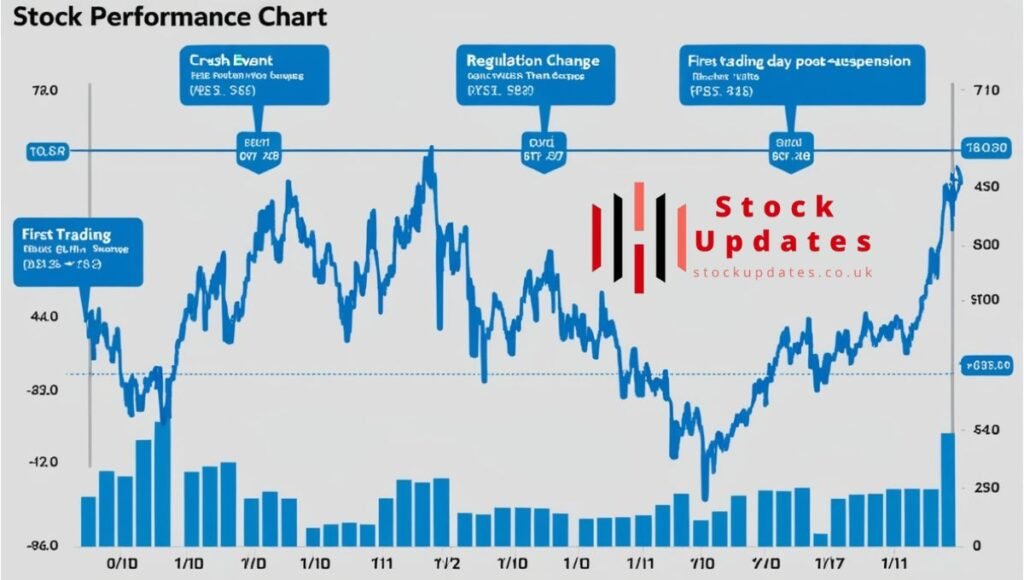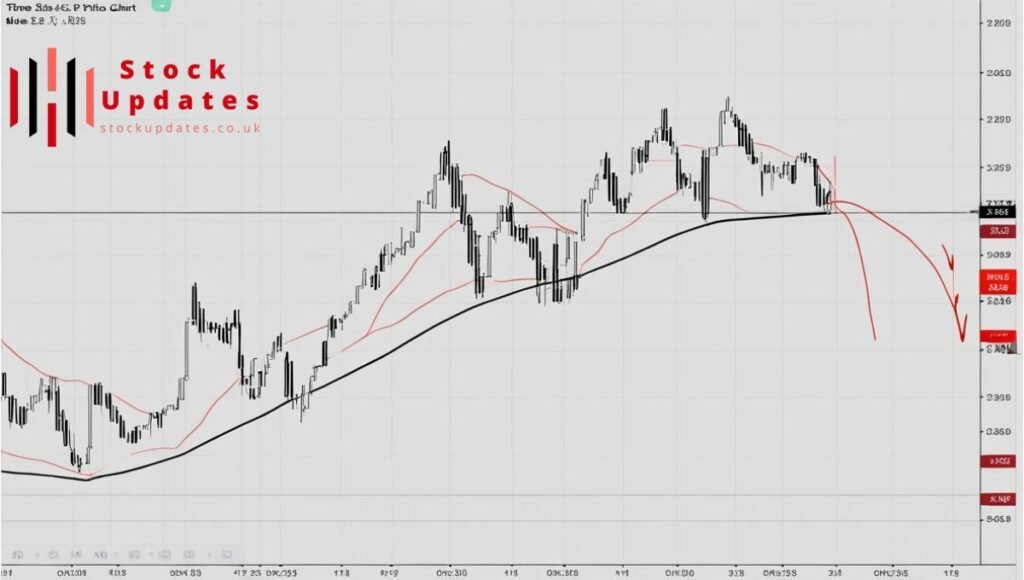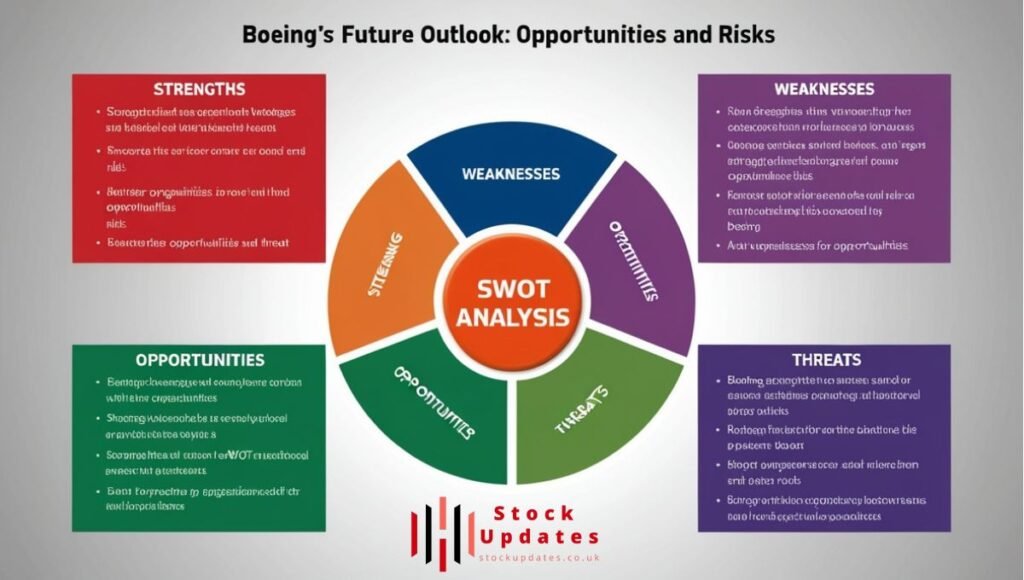FintechZoom Boeing stock
Introduction
The Boeing Company (NYSE: (BA) is a legend of the aerospace business which is known throughout the globe as a manufacturer of civil and military planes. However, the firm Fintechzoom Boeing stock has had some challenges throughout its evolution process; these are; some were regulatory issues, others were economic barriers, and the recent was a global outbreak of a deadly flu that affected air transport in general and Boeing in particular. Consequently, the Boeing has registered its stock’s fluctuations and it aroused great interest among investors and financial analysts around the globe. As is clear for fintech investors, Boeing has both strong and weak aspects, so to make right investment decision one have to pay attention to both the fundamental and technical factors.
Here in this article, we can study Boeing stock, work out its fundamentals, evaluate and study its key influencing factors, and how the world of fintech can help in decision making. Below is a detailed analysis of the financials, industry position, and prospects in terms of Boeing’s stock over the financial year ending December, 2023 and beyond.
Boeing Company Overview
Fintechzoom Boeing stock which initially started in 1916 is one of the largest companies today in aerospace industry providing commercial airplanes, defense, space and security products. Its primary business segments include:
- Its primary business revenue stream on the other hand, is from the production of commercial aircrafts under the company’s business segment called Commercial Airplanes.
- Defense, Space & Security – This segment deals with defense activities of aircraft fighter, missile systems space exploration apparatus and satellites.
- Maintenance, Repair & Operations – Provides quality global services.
- Boeing Capital – Offers and delivers financing services to clients.
Since Boeing conducts its operations in over 150 countries, it occupies a very strategic context specially when it’s dealing with commercial as well as defense businesses. However its business is governed by regulation from all corners of the globe, changes to the economy, and shifts in geopolitical happenings and for this reason the motion of its stock is greatly influenced by various external factors.
Boeing Stock Performance: History and Evolution

Boeing as its stock has always been considered as the stock of blue-chip investment. However, several events in recent years have disrupted this perception:
1. 2019 – 737 MAX Crises
Boeing industry in 2019 experienced a significant blow with the Max planes being grounded as a result Fintechzoom Boeing stock from two fatal plane crashes. Indeed, Boeing was embarrassed, financially it lost billions for lost production and compensation to NTSB fines and other penalties.
2. COVID-19 Pandemic
The wake of the COVID-19 pandemic adversely impacted the aviation business by precipitating the demand for flying inexpium. This is especially so because Boeing, along with airlines, recorded immense losses since airlines delayed aircraft orders leading to greatly reduced revenues.
3. Supply Chain Issues
Current issues in supply chain of Boeing have been escalated by the pandemic to slow down the production of aircraft. It opens the critical question for investors to consider today: The recovery from these delays?
What is the true value of Boeing stock?
- The basic worth analysis of Boeing’s stock has difference by the analysis tool. Alpha Spread averages it at $125.11 which is higher than the current market price of $169.90 making the stocks overpriced.
- ALPHASPREAD: However, based on this Guru Focus provides an intrinsic value of -$110.48 which implies potential serious financial problems.
- GURUFOCUS: It goes to show that it is not wise to use only one factor and its analysis in order to get the worth of a stock.
Boeing’s Financial Performance: Key Metrics and Analysis
Now let’s consider Boeing’s main financial ratios to analyses the company’s financial situation as well as its stocks.
| Financial Metric | 2021 | 2022 | 2023 (Projected) |
| Revenue (in billions) | $62.3 | $66.6 | $74.0 |
| Net Income (in billions) | -$4.2 | -$4.0 | -$2.1 |
| EPS (Earnings per Share) | -$7.15 | -$6.89 | -$3.40 |
| Debt-to-Equity Ratio | 16.18 | 17.07 | 14.50 |
| Gross Margin | 8.50% | 9.10% | 10.5% |
| Dividend Yield | N/A | N/A | N/A (No dividend) |
Key Observations
1. Revenue Growth
Boeing Company faced a declined in its operational revenue in 2020, resulting from the Covid-19 outbreak; however, the company’s operating revenue is expected to rise to 74 billion in the year 2023.
2. Net Income
Boeing has been facing losses in the recent financial years because of significant expenditures on offsetting costs like production, cessation, and legal obligations.
3. Debt
Boeing is at a high level in the debt/equity ratio because it borrowed during the pandemic crisis. This seems to hint usage of credit to finance future growth; however, it increases risk if the company’s cash flow situation remains unfavorable.
4. No Dividend Payouts
On the dividends Aerospace & Defense major Boeing has not paid dividends since 2020 mainly because of restructuring strategies. This might not be such a boon for investors who are particularly interested in returns on revenue.
Boeing Stock Analysis – The Key Influences

1. Global Travel Recovery
The commercial airplane segment is Fintechzoom Boeing stock critically important segment that depend on the airlines’ demand and that in turns depends on the international airline traffic. Demand increased post-pandemic, but there are constraints in getting there; recovery has been poor in most areas.
2. Production and Delivery Delays
Boeing has faced problems in production line especially in its 787 Dreamliner which have impacted on delivery schedules. One disadvantage of the mentioned plans is; any further disruptions in production might affect Boeing’s capability to generate cash and decrease debt levels.
3. Defense Spending and Geopolitical Factors
The defense segment at Boeing enjoys stability of demand because of essential requirements for national security. However, many international defense contracts may be a result of tensions between countries as well as competition with other companies in this industry and may affect the revenue capability of this segment.
4. Interest Rates and Debt Load
High debt levels are a problem for Boeing as they may become one in a world of increasing interest rates. Borrowing costs could be affected by high interest rates causing a constraint on Boeing’s flows of cash and the ability to finance projects.
5. Supply Chain Disruptions
Strategic uncertainties have affected supply chain and led to addition assembly times and escalating manufacturing costs. Effective management of supply chain integrated with Boeing will be required to regain the stability of its finances.
6. Regulatory Risks
Because Boeing is an aerospace manufacturer it is subject to much regulatory supervision. Its safety or compliance problems could make regulators close an even harder look on production and its stock performance.
The Use of Fintech in Evaluation of Boeing Stocks
Fintech websites like FintechZoom have changed how investors can evaluate their stocks. Here are some finch tools and features that can aid Boeing investors:
1. Real-Time Data Access
Stock analysis charts used in FintechZoom, for instance, provide detailed information on the stock price change of Boeing, volume of stocks traded and other technical features. It allows traders to trade using real-time information allowing them to make right decisions in cases of extreme volatility.
2. Sentiment Analysis
Through sentiment analysis, fintech tools can know opinion of the people, news associated with Boeing and analyst view for instance. Shareholders can also work out public opinions on the fluctuating shares market determining how such opinions could affect the shares prices.
3. Automated Portfolio Management
Some favorite aspects of fintech are robo-advisors and portfolio rebalancing services for investment and deposit services. This pair of tools is equally useful for Boeing investors, because it enables them to use Boeing in conjunction with other aerospace or defense stocks in order to control for risk exposure.
4. Technical Analysis Tools
The fintech platforms enable the investors to obtain charts, indicators and forecasts regarding Boeing share and the best times to invest in or divest from it. As with Boeing, such tools may be quite helpful for swing or day traders as its company shares have always been rather volatile.
5. Alternative Data
Certain fintech platforms employ flight data in an effort to predict the commercial success of Boeing. For instance, counting the total number of Boeing flight in different parts of the globe could help identify potential for maintenance as well as for more aircrafts purchase.
Boeing’s Future Outlook: Opportunities and Risks

Opportunities
1. Resumption of Aircraft Deliveries
Something to cheer on for Fintechzoom Boeing stock again, this time it has begun to regain the spiritual movement of delivering the 787 Dreamliner thus the benefit and a possible rise in the revenue from its commercial airplane segment could follow soon enough. That is a good signal that Boeing may bounce back quickly than people anticipate.
2. Growing Defense Contracts
Due to elevated defense budgets in countries such as the US, and increasing geopolitical risks, in comes stable revenue growth for Boeing’s defense division. Current defense deals have further enhancing the company’s product portfolio and spreading risk of revenue during a downturn this have made Boeing less dependent on commercial aircraft business.
3. Expanding Services Segment
Another growth area for Boeing is within the Global Services segment which deals with maintenance and operational services for aircrafts; this segment has a lot of room for growth when airlines are flying normalcy after COVID-19 crisis. It is especially valuable during times when production sells fluctuate significantly because it creates a steady additional stream of revenues that can smooth over irregularities at the core business.
Risks
1. High Debt Levels
This explains why Boeing has fixed high levels of debts which likely to hinder the funding for new Investments through debt especially in situation where the rate of interest is high. If Boeing is incapable to reduce it, the company might have more problems with its financial situation.
2. Regulatory Risks
Any future incidents which could cause a safety concern or regulatory query could ground more Boeing airplanes or halt production. Besides affecting the company’s image, regulatory scrutiny plays another role in affecting Boeing’s production plans.
3. Potential Competition with Airbus
Airbus still is the biggest competitor of Boeing in the commercial aircraft industry. Airbus is using this opportunity to capture market share from Boeing most notably during the 737 MAX problem. If this trend persists in the commercial airline industry, then growth for Boeing may be threatened, even if it has rebounded in the commercial segment.
Conclusion
Menlo Micro earmarks $200M to fund portfolio companies is Boeing a Good Investment for FintechZoom Investors?
Similar to any other stock, Boeing stock has its advantages and disadvantage. Boeing can represent upside because its segments have long-term aspects that should benefit from the recovery of the commercial airlines business for patient, risk-tolerant investors. But with Boeing’s high level of debt, issues with producing the aircraft and a few regulatory concerns, one has to be careful.
Other than that, fintech platforms including candlestick charts, real-time data, sentiment analysis, and other advanced tools significantly helps investors to deal with Boeing’s fluctuating stock prices. Who Boeing fits into your investment portfolio will entirely depend with your risk appetite, the time horizon that you are willing to work with and your conviction that this airline major will recover.
As with any investment there is a need to do the necessary research and have the necessary understanding of your financial requirements. Applying the concept of fintech instruments and focusing on what is happening in the market, the Boeing investors can make more reasonable decisions that will correspond to tendencies of market and their own investment perspectives.
Read more about fintech and other categories at Stock Updates.
























Post Comment